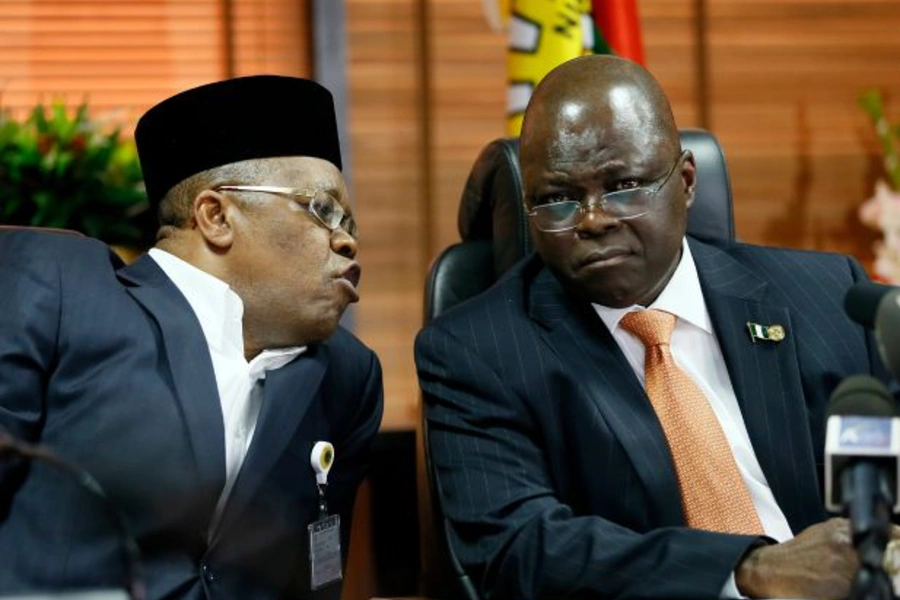More on:
The Natural Resource Governance Institute, a New York-based think tank and advocacy organization, has issued a must-read report, Inside NNPC Oil Sales: A Case for Reform in Nigeria. The authors are Aaron Sayne, Alexandra Gilles, and Christina Katsouris. The Nigeria National Petroleum Corporation (NNPC) sells about half of Nigeria’s oil, worth an estimated $41 billion in 2013.
The report concludes that NNPC’s approach to oil sales “suffers from high corruption risks and fails to maximize returns for the nation.” The report is detailed—it runs to seventy-one pages with additional annexes. It is thoroughly convincing and offers specific recommendations. It notes that “the bad practices that undermine NNPC oil sale performance all have political interference at their root.” The report also argues that the new presidential administration of Muhammadu Buhari has a unique opportunity to tackle the problems at NNPC, which have long been ignored.
At almost the same time the Natural Resource Governance Institute issued its report, President Buhari announced a wholesale sacking of the directors and senior management at NNPC. The president relieved the group managing director and the executive vice chairman, who had been appointed by former president Goodluck Jonathan. The following day, he fired the nine NNPC executive directors.
Buhari’s choice of group managing director is Emmanuel Kachikwe. He has been executive vice chairman and general counsel of Exxon-Mobil (Africa). Among other academic attainments, he holds masters and doctorate degrees from the Harvard Law School, according to Nigerian media. He has also worked for Texaco Nigeria. Nigerian media reports that he intends to reduce the number of group managing directors from nine to four.
As with his appointment of new military service chiefs, Buhari’s choices indicate that he focuses on expertise and experience, rather than on political connection. Inside NNPC argues that reform of NNPC does not require omnibus legislation, but rather a bold agenda with a short timeline. Buhari’s personnel choices fit that prescription.
More on:
 Online Store
Online Store
